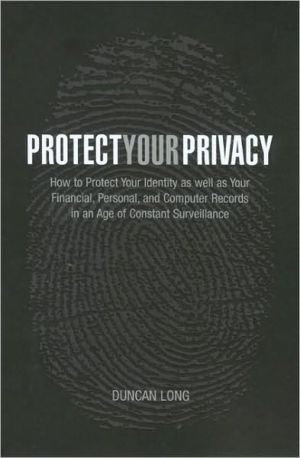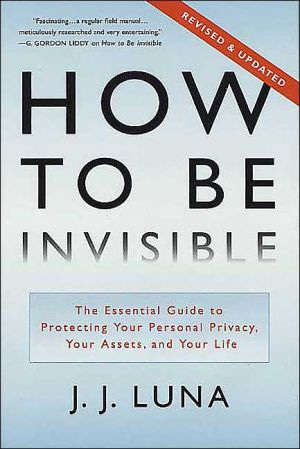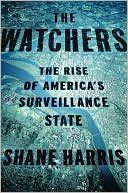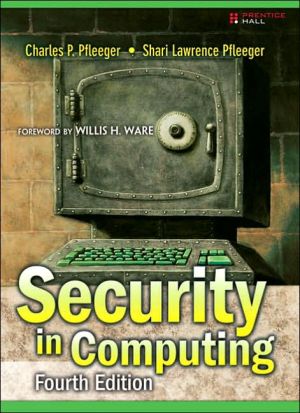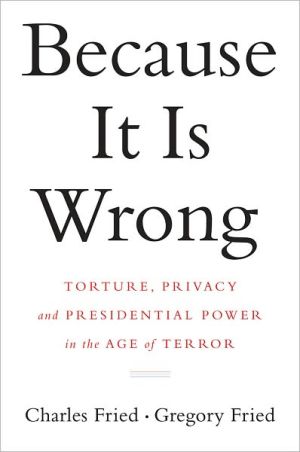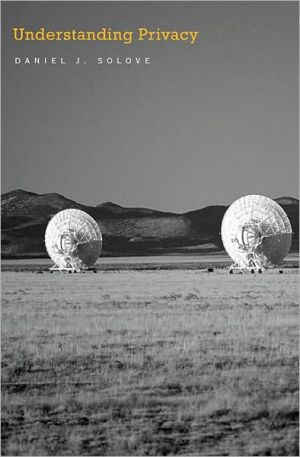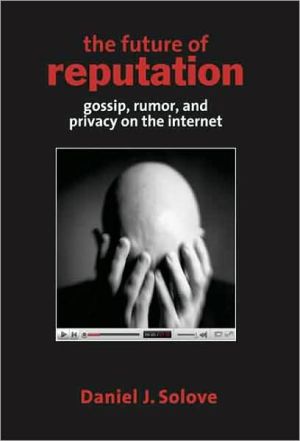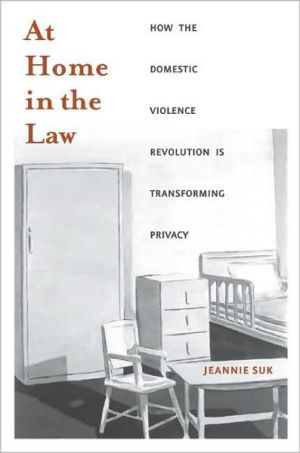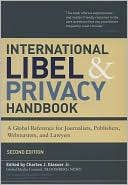Protect Your Privacy: How to Protect Your Identity as well as Your Financial, Personal, and Computer Records in an Age of Constant Surveillance
Privacy is a basic principle of democracy, but these days it seems privacy is almost obsolete. Armies of government snoops, corporate data miners, identity thieves, private investigators, and even nosy neighbors can easily dig up as much information as possible on you, your loved ones, and everyone else. They can find out exactly what you’ve said on the phone, what you’ve e-mailed, the websites you’ve visited, your financial details, what you’ve paid in taxes—or what you’ve paid for anything...
Search in google:
Everything you need to know about how to protect your computer security, financial privacy, telephone privacy, identification, freedom of movement, and more!
Protect Your Privacy\ How to Protect Your Identity as well as Your Financial, Personal, and Computer Records in an Age of Constant Surveillance \ \ By Long, Duncan \ The Lyons Press\ Copyright © 2007 Long, Duncan\ All right reserved.\ ISBN: 9781599210209 \ \ \ The Freedom to be MeGiven both the “cracking power” of the modern computers owned by the various governments of the world, as well as the pressure to place backdoors into computer programs, it’s wise to assume that anything you write or save to your hard drive might be seen by government snoops. Yes, I’m about to show you have to be 99.99 percent sure it won’t be. But as computers grow more powerful and governments more intrusive in our daily lives, you should never place anything into an email or on hard drive that might eventually get you hung out to dry. Whether it’s a questionable picture or a piece of software you haven’t purchased the rights to, or an email that makes disparaging remarks about a government official, never to place anything on your hard drive that might be embarrassing if made public. \ That said, it is possible to encrypt and protect material from anyone with less power than a government agency. This sort of protection allows you to continue engage in private exchanges without fear of being “overheard” in one way or another.\ Email gives us the illusion of a private message. We’re used to thinking of mail as private, and also write and receiveemail in a relatively private way. Yet this is all an illusion, because without encryption any e-mail is like a message sent via postcard. A postcard first delivered across the street to your neighbor who a day later brings it to your home. Maybe it has been read by someone else and maybe not. \ With email, chances are no one will intercept and read it. But if you value your privacy and want to avoid identity theft and other problems (which are a consideration when you send an email with financial or legal information in it), privacy with our email is a necessity, not a luxury.\ Unlike your physical mail, email is also extremely “durable.” While you may delete an email message from your computer (which, as noted in a previous column, only removes the record of its position from your hard drive — but leaves the information on the drive where it can be read by special software), it is also stored in the ISP (Internet Service Provider) archives for some time. Additionally, a copy of anything sent to or from you will be on the computer of the person you have an email exchange with. And some companies also back up all email sent to or from business offices. \ Thus for any given piece of email that you send or receive, there may be a number of duplicates readily accessible in several locations by a variety of personnel (or by a government subpoena). These copies may be discarded after a few hours, days, or months. Or they may be placed in an archive in case they are needed in the future, in which case they may be more similar to Babylonian clay tablets in the desert rather than paper documents when it comes to enduring for centuries to come. As long as email is backed up somewhere, any gung-ho government agent or private detective intent on “getting you” might be able to access it. \ So never, ever, send an email that might be misconstrued to transform you into a criminal of one sort or another, be it racist, sexist, criminal, or other crime which is often defined in large strokes. Emails without encryption are not private. They’re like telling your secrets on main street, by whispering them into a bullhorn.\ Given the current trend of governments worldwide to be more and more intrusive in our private lives, it seems doubtful that any government will soon be lobbying to guarantee email privacy. \ Putting Your Email Into an “Envelope”\ Again, the best way to avoid trouble is never to send a questionable email. But sometimes you will need to send data or communicate in a way that can’t be easily read. It might be sending your social security number to an employer. Or a secret letter to a lover. Or any of many other cases when information needs to be private. In such a case you can put an “envelope” of encryption around your message to prevent snoops from easily reading it.\ \ \ --Excerpt from OUTWITTING SNOOPS by Duncan Long\ \ \ Continues... \ \ \ \ Excerpted from Protect Your Privacy by Long, Duncan Copyright © 2007 by Long, Duncan. Excerpted by permission.\ All rights reserved. No part of this excerpt may be reproduced or reprinted without permission in writing from the publisher.\ Excerpts are provided by Dial-A-Book Inc. solely for the personal use of visitors to this web site. \ \
Introduction viiAt Home in Your Castle 1Face-to-Face Privacy 25Identity Theft 39Phone Privacy 83Computer Privacy 101The Internet 139Dollars and Sense 183Big Brother 191Your Papers, Please 223Leaving Dodge 241Conclusion 249Glossary 251Index 265
